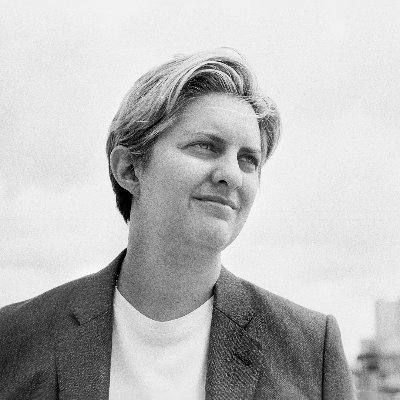When Erica Anderson received the news that she had been named to the 2020 Fortune 40 Under 40 list, she was, of course, flattered — but it was more than that.
“I think it was a nice summary of what I’ve been doing,” Erica says on an episode of Between 2 Mics. “[It was] helpful, actually, for me to reflect on the work that I’ve done.”
Throughout her career, Erica’s work in the media and technology spaces has made her a leader in the journalism world, as well as a major player in bridging the gap between traditional and new storytelling formats. After stints working at CBS News, Twitter and Google — where she played a major role in organizing the 2018 global walkout — Erica landed at Vox Media in 2019, where she works as executive producer for the Pivot and Recode Decode podcasts.
Erica calls podcasting a “socially impactful medium” and relishes the opportunity to work in a pocket of the journalism world she believes is regularly on the edge of sharing ideas and perspectives that are “typically kept outside of the central, mainstream media ecosystem.”
As the executive producer of two successful podcasts with massive reach, Erica knows a thing or two about creating high-quality content for listeners. Here are a few things she’s learned.
1. Follow your curiosity
“Truthfully, my career has been guided by this question of, what am I curious about?” Erica says.
This sense of curiosity may have been the driving force behind Erica’s early career in a TV newsroom, her transition to tech and then her pivot to podcasting, but it continues to play a role in her work as a producer with Vox Media. Because she thinks of podcasts as an extension of traditional journalism, the shows she works on are guided by her passion for sharing good stories and connecting with audiences over them.
When planning and producing your own show, look for ways to be guided by your personal curiosity! This will ensure that your content is fresh and interesting to listeners. Others are bound to share your curiosity.
2. Assemble the right team for the job
While there are different demands for each show Erica works on, one thing remains the same across the board: Vox has assembled the right team for the specific nature of each show.
Take Pivot, which releases new episodes twice a week and is tied closely to current events, as an example. “For that show, it’s a very lean staff, because we’re not working with extra tape,” Erica says. “We start in the morning at 10 a.m., we finish at 10 p.m. and the show goes off at 6 a.m. the next day.”
Along with the show’s two hosts, producer and sound engineer, Erica works to conceptualize, script, edit, record and finalize episodes of Pivot twice a week — but she knows the operation looks different for other kinds of shows. Storytelling or narrative shows, for example, tend to require larger staffs working at a slower pace that will allow for team members to take breaks and prevent burnout over the often long process of putting together complex reporting.
Whatever your show requires, find the right people to get it done.
3. Find your differentiator
Erica is constantly evaluating what makes a podcast special in an increasingly crowded space. Ultimately, she believes it comes down to a marketing term — your show’s “differentiator.”
“You find your differentiator and you really lean into that,” she says.
The best way to distinguish your podcast from other shows that cover similar subjects is to consider its unique qualities. Your differentiator may be the chemistry between your hosts, creative stingers to introduce various segments or playful music.
While Erica notes that these differentiators may become apparent to you organically, you may also have to invest extra effort into working them into your show’s scripts so it becomes a
regular part of the pod’s DNA.
4. Consider your show’s vibe
“The show is an organism,” Erica says of any podcast. “It should have a vibe, it should have a feeling, it should make people obsessed with it and excited to come back and feel like they’re part of it.”
The key to making a “visceral connection” with audiences and encouraging them to keep coming back for more, Erica says, is getting the chemistry right! If you have a podcast with multiple hosts, focus on building that chemistry… because that’s often where the magic happens.
For more of Erica’s insights on how to make the most of the podcasting format, listen to this episode of Between 2 Mics. Be sure to subscribe to get future episodes directly in your preferred podcast player.
Rockwell Felder is a CPA, entrepreneur, and co-founder of SquadCast. He and his team are on a mission to amplify collaboration, seeking to empower creatives to engage in meaningful conversations without barriers.
